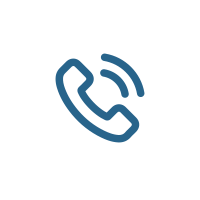Work Account
Understanding Azure Work Accounts: A Gateway to Seamless Identity Management
Technical Overview
In today’s cloud-first world, managing identities across multiple platforms, applications, and devices is a cornerstone of enterprise IT strategy. Azure Work Accounts serve as a foundational identity mechanism within the Microsoft ecosystem, enabling organisations to streamline authentication, authorisation, and collaboration. But what exactly is a Work Account, and how does it fit into the broader Azure identity framework?
At its core, an Azure Work Account is an identity that allows users to access organisational resources, such as Microsoft 365, Azure services, and custom applications. These accounts are typically managed through Entra ID (formerly Azure AD), Microsoft’s enterprise-grade identity and access management solution. Work Accounts are distinct from personal Microsoft Accounts, as they are tied to an organisation’s domain and governed by corporate policies.
Architecture
The architecture of Azure Work Accounts is deeply integrated with Entra ID. Each Work Account is a directory object within Entra ID, inheriting the organisation’s security policies, access controls, and compliance requirements. This integration ensures seamless single sign-on (SSO) capabilities across Azure services and third-party applications that support OpenID Connect or SAML protocols.
Work Accounts leverage a multi-layered architecture to ensure scalability and security:
- Directory Services: Entra ID acts as the central directory, storing user identities, group memberships, and access policies.
- Authentication Mechanisms: Work Accounts support modern authentication protocols, including OAuth 2.0, SAML, and WS-Federation, enabling secure access to cloud and on-premises resources.
- Conditional Access: Policies can be applied to Work Accounts to enforce multi-factor authentication (MFA), device compliance, and location-based restrictions.
- Integration with Identity Governance: Work Accounts can be managed through Azure’s identity governance tools, ensuring lifecycle management, access reviews, and entitlement management.
Scalability
Azure Work Accounts are designed to scale with organisations of any size. Whether you’re a small business with a handful of employees or a multinational enterprise with thousands of users, Work Accounts can handle the load. Entra ID’s global infrastructure ensures low-latency authentication and high availability, even during peak usage periods.
Moreover, Work Accounts can be synchronised with on-premises Active Directory using Entra Connect, enabling hybrid identity scenarios. This hybrid approach allows organisations to maintain their existing on-premises identity infrastructure while leveraging the scalability and flexibility of the cloud.
Data Processing
Data processing for Azure Work Accounts is governed by Microsoft’s stringent privacy and compliance standards. User data is encrypted both in transit and at rest, ensuring that sensitive information remains secure. Additionally, Microsoft provides detailed audit logs and activity reports, allowing organisations to monitor account usage and detect potential security threats.
Work Accounts also support Continuous Access Evaluation (CAE), a feature that enables near real-time enforcement of access policies. For example, if a user’s session is compromised, their access can be revoked immediately, minimising the risk of data breaches.
Integration Patterns
Azure Work Accounts integrate seamlessly with a wide range of Microsoft and third-party services. Common integration patterns include:
- Microsoft 365: Work Accounts provide access to email, collaboration tools, and productivity applications.
- Custom Applications: Developers can use Azure AD’s application registration feature to enable Work Account authentication for custom apps.
- Third-Party SaaS Applications: Work Accounts can be used to access popular SaaS platforms like Salesforce, ServiceNow, and Google Workspace.
- On-Premises Applications: Through Entra External Access, organisations can extend Work Account authentication to legacy on-premises applications.
Advanced Use Cases
Azure Work Accounts are not just about basic authentication; they enable advanced scenarios that drive business value:
- Zero Trust Security: Work Accounts are a critical component of a Zero Trust architecture, ensuring that every access request is authenticated, authorised, and encrypted.
- Guest Access: Organisations can use Entra External ID to provide secure access to external collaborators, such as contractors and partners, using Work Accounts.
- Identity Federation: Work Accounts can be federated with other identity providers, enabling seamless cross-organisational collaboration.
- Role-Based Access Control (RBAC): Work Accounts can be assigned roles within Azure, ensuring that users have the appropriate level of access to resources.
Business Relevance
Why should organisations care about Azure Work Accounts? The answer lies in their ability to simplify identity management while enhancing security and productivity. In a world where cyber threats are becoming increasingly sophisticated, having a robust identity solution is non-negotiable.
Azure Work Accounts offer several business benefits:
- Enhanced Security: Features like MFA, conditional access, and CAE protect against unauthorised access and data breaches.
- Improved Productivity: SSO capabilities reduce the need for multiple passwords, allowing employees to focus on their work rather than managing credentials.
- Cost Efficiency: By consolidating identity management into a single platform, organisations can reduce the overhead associated with maintaining multiple identity solutions.
- Regulatory Compliance: Azure Work Accounts help organisations meet compliance requirements, such as GDPR, HIPAA, and ISO 27001.
Best Practices
To maximise the value of Azure Work Accounts, organisations should follow these best practices:
- Implement Conditional Access Policies: Use conditional access to enforce security requirements based on user location, device compliance, and risk level.
- Enable Multi-Factor Authentication: MFA is a simple yet effective way to enhance account security.
- Regularly Review Access Permissions: Conduct periodic access reviews to ensure that users have the appropriate level of access.
- Monitor Activity Logs: Use Azure Monitor and Log Analytics to track account activity and detect anomalies.
- Educate Users: Provide training on best practices for password management and recognising phishing attempts.
Relevant Industries
Azure Work Accounts are versatile and can be used across various industries:
- Healthcare: Securely manage patient data and comply with regulations like HIPAA.
- Finance: Protect sensitive financial information and meet compliance standards such as PCI DSS.
- Education: Provide students and faculty with secure access to learning resources and collaboration tools.
- Retail: Enable secure access to point-of-sale systems and inventory management applications.
- Manufacturing: Support IoT and supply chain applications with robust identity management.
